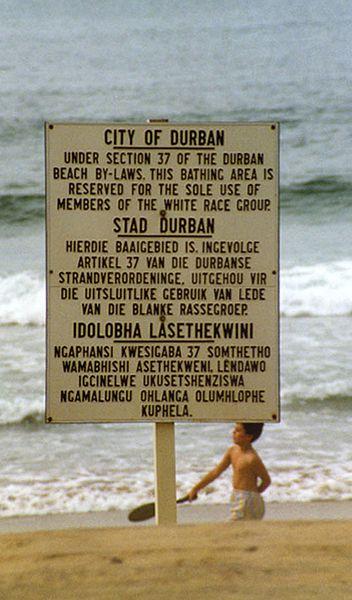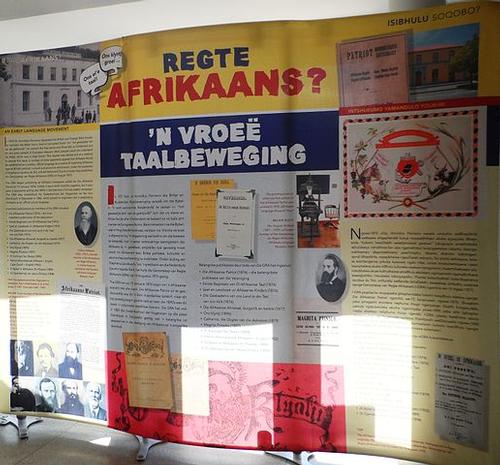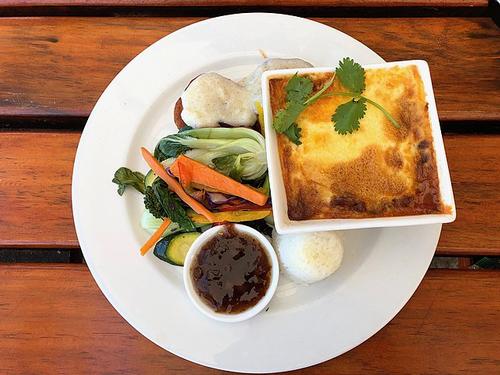SOUTH AFRICA
Language

Language

Cities in SOUTH AFRICA
| Cape town | Johannesburg |
Language
In South Africa, 11 languages are more or less considered official after the early 1990s. English and African (since 1925) were until then considered the official languages by the government and are also used in parliament. The nine languages are often divided into four language groups, Venda, Tsonga, Nguni and Sotho. The most widely spoken languages are Zulu (28% of the black population) and Xhosa (27%), the main languages of communication, and further African, Tswana (12%), North Sotho (11%), English, South Sotho (9 %) and Tsonga (4%), Ndebele (3%), Swazi (3%) and Venda (3%).
Languages with no official status include - mainly spoken by Indians - Tamil (spoken by 24% of the Asian population), Hindi (19%), Gujerati (12%) and Urdu. Also without official recognition, the languages of European immigrants are: German, Dutch, Portuguese, Italian and Greek.
The "Fanagalo" is a mixed language that originated over time and is a mixed language of African English and Bantu languages.
 Sign at the beach with text in English, Afrikaans and ZuluPhoto: Guinnog CC 3.0 Unported no changes made
Sign at the beach with text in English, Afrikaans and ZuluPhoto: Guinnog CC 3.0 Unported no changes made
Afrikaans is one of the two official languages of the Republic of South Africa, and the mother tongue of approximately 4 million South Africans, as well as some populations in Namibia in eastern Zimbabwe. The language belongs to the West Germanic language group and has a great similarity in character and character to the Germanic languages. But of course in the first place with Dutch, from which the language originated since the mid-17th century. English and German influences are also clearly recognizable. Most words come from Dutch and as such are easily recognizable to Dutch people, but many new words have been formed over the centuries that are unknown in the Dutch language.
These words come in chronological order from Khoisan, the language of the Hottentots, Malay and Portuguese, and later from the Bantu languages and finally from English. English has by far had and still has the strongest influence on vocabulary.
In the 18th century, development into Afrikaans as a colloquial language was completed, and "High-Dutch" remained as a written language. The first writing that consciously used Afrikaans was the song in honor of the Swellendamsche and various other heroes, etc. from 1795.
The British occupation of the Cape resulted in the displacement of Dutch-African by English, and in 1822 English was made the first language and shortly afterwards it became the only official language. Nevertheless, Afrikaans as a colloquial language would remain alive, especially in the countryside. However, it would take until the founding of the 'Genootskap van Regte Afrikaners' started for a deliberate endeavor, to come to the recognition of Afrikaans as a national and national language and to develop it into a fully-fledged language of instruction. This endeavor was finally rewarded: from 1914 to 1918, African became increasingly the medium of education in primary and secondary education.
 Afrikaans, an official language in South AfricaPhoto: ECSequeira CC 3.0 Unported no changes made
Afrikaans, an official language in South AfricaPhoto: ECSequeira CC 3.0 Unported no changes made
From 1918, Afrikaans was introduced as a subject of study at universities and became the language of instruction, and in 1925 the African language became the official national language in addition to English. On May 29, 1933, the first shipment of the London-printed Bible in African was brought to Cape Town. This was an important moment in the history of this language and the crowning of the Second African Movement.
Examples of this language influence;
From Khoisan tribe:
- Names of tribes such as Sonkwas and Griekwas
- Kwagga = zebra
- Gogga = insect
- Dagga = narcotic
- Abba = carry on the back
- Kierie = stick
- Karos = blanket of animal skins
From Bantu:
- Indoena = counsel
- Mamba = snake
- Shieba = food
- Kaia = hut
- Maroela = tree with yellow fruits
- Donga = deep ditch
- Indaba = deliberation
From Malay:
- Blatjang = herb sauce
- Katjiepier = shrub
- Baie = a lot
- Bobotie = meat dish
- Dupa = charm
 Bobotie, a South African dishPhoto: Olga Ernst CC 4.0 International no changes made
Bobotie, a South African dishPhoto: Olga Ernst CC 4.0 International no changes made
From Portuguese:
- Almaskie = though
- Spens = pantry
- Tronk = prison
- Aia = form of address
From English:
- Bokkie = light, open car
- Bottel = bottle
- Pulled = freight car
- Tonnel = tunnel
- Platform = platform
- Sokker = football
- Enjin = machine
- Petrol = petrol
- Brekfris = breakfast
- Lorrie = truck
- Cricket = cricket
- Washing up = washing up
- Briek = brakes
Afrikaans originated in the dialect and vernacular of the early settlers. They came from various regions, but mainly from South Holland, Zeeland and the west of Utrecht. Contacts with the motherland soon faded and the dialects mixed with the usual consequences: the language was leveled and the differences in pronunciation, word usage and sentence structure were arbitrarily chosen, and a strong tendency to simplify developed. Thus, conjugation and inflection have largely disappeared. For example, the verb orphan, in Dutch, "to be" is conjugated as follows:
ek is = you is
hy is = is us
julle is = you are
Very striking within Afrikaans is also the double denial:
ek het dit nie gedoen nie
The near absence of the simple past:
ek het vir my vrou gesê = I told my wife
The diminutive ending tjie:
bietjie, meisietjie, seuntjie.
New words emerged for specific African affairs, animals and plants and words that related to specific Dutch affairs disappeared or were transferred to similar phenomena in the new country. New African words were also formed from existing Dutch words. Examples of these developments are:
- verkleurmannetjie or trapsoetjies = chameleon
- kameelperd = giraffe
- wildeperd = zebra
- seekoei = hippopotamus
- vlakvark = warthog
- bobbejaan = baboon
- kremetartboom = baobab
- stinkhout = hard wood
- aalwyn = aloe
- penswinkeltjie = belly-mounted drawer with merchandise
- deurpad = priority road
- wegneemetes = takeaway
- peuselhappie = snack
- voetslaan-paaie = hiking trails
- broeikas = incubator
- bedorwe brokkie = spoiled child
Sources
Dekker, M. / Zuid-Afrika
Gottmer/Becht
Luirink, B. / Zuid-Afrika : mensen, politiek, economie, cultuur, milieu
Koninklijk Instituut voor de Tropen,
Moerkamp, J. / Zuid-Afrika
ANWB
Schaap, D. / Zuid-Afrika
Minbuza Kosmos-Z&K
Zuid-Afrika
Cambium
CIA - World Factbook
BBC - Country Profiles
Last updated June 2025Copyright: Team The World of Info